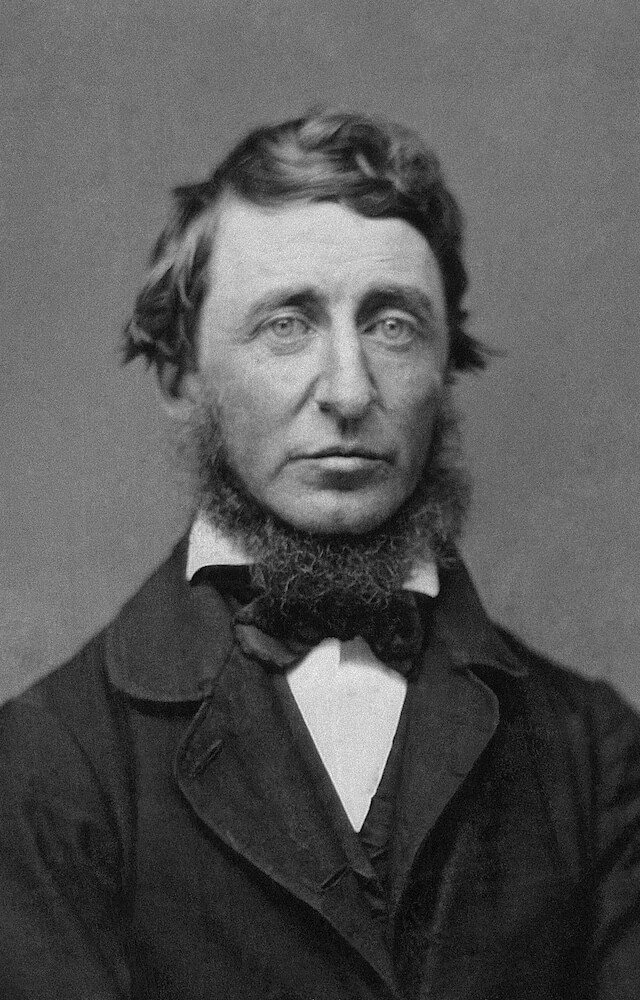
Henry David Thoreau, born July 12, 1817, was a naturalist, author, philosopher and transcendentalist who was best known for his 1854 book Walden; or Life in the Woods. That book, and many of Thoreau’s essays and speeches, concerned themselves with the importance of living a plain and simple life in natural environments removed from civilization, leading to more self-reliance and spiritual discovery. Thoreau’s other most well-known work is his 1849 essay “Civil Disobedience” which led to his often being referred to as an anarchist, which he heartily accepted.
In his later years he maintained his fascination with travel and excursions and became more interested in land surveying. He died on May 6, 1862, at the age of 44 just a couple of years after a late-night rainstorm outing to count the rings of tree stumps when he fell ill with bronchitis, which eventually led to him becoming bedridden. Ralph Waldo Emerson, who wrote the biographical sketch to Excursions, which was published a posthumously in 1862, wrote the eulogy that was read at Thoreau’s funeral. His remains, originally buried at a family plot, were later relocated to Author’s Ridge at Sleepy Hollow Cemetery in Concord, Massachusetts. Other notable writers buried in that location include Louisa May Alcott, Nathaniel Hawthorne, and Ralph Waldo Emerson.


